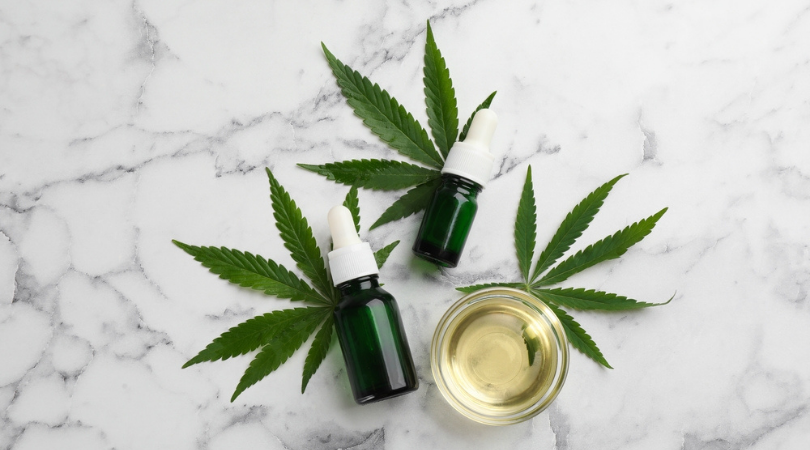When it comes to cannabis and hemp, there are a lot of terms to understand. This can be overwhelming at first. Then, once you get a firmer grasp on the various terms, like CBD and THC, you start to wonder about the finer points that set them apart. Learn the difference between CBD, THC, marijuana, cannabis, and hemp.
Quick Overviews
Before delving into more detail, let’s start with a quick overview to help sort out the various terms in your mind.
- CBD (cannabidiol) is the main non-psychoactive cannabinoid that naturally occurs in cannabis and hemp. You don’t get high from consuming it.
- THC (tetrahydrocannabinol) is the main psychoactive cannabinoid that naturally occurs in cannabis. It’s the reason you get “high.”
- Cannabis and marijuana are the same thing. Both are plants with at least 0.3% THC.
- Hemp is the same type of plant as cannabis is but with less than 0.3% THC.
With that background in mind, take a closer look at the differences of each and how they all connect.
The Basic Difference Between Hemp and Marijuana/Cannabis
Hemp and marijuana are the same type of plant, but the main difference is how much THC they contain. Most countries, including the U.S., Canada, and most of Europe, put the limit at 0.3% THC. Anything more than this qualifies the plant as marijuana, and anything less means it is hemp. Each country can set its own limit, but 0.3% is the most common standard.
The History of the 0.3% Limit
The standard of using 0.3% THC as the distinguishing line began with “The Species Problem in Cannabis: Science & Semantics,” which Ernest Small wrote in 1979. In the book, he pointed out that there aren’t any taxonomic differences between hemp and cannabis. As a solution, he proposed the 0.3% rule but fully acknowledged that he chose an arbitrary number.
Hemp Plant Uses
You should also note that hemp is commonly used in a long list of industries. There are applications for body care, textiles, industrial textiles, paper, food, building materials, and more.
Marijuana Vs. Cannabis
Marijuana and cannabis both describe cannabis plants with THC concentrations of more than 0.3%. The reason we have two terms goes back to the early 1900s.
During the early 20th century, the term cannabis was more common, and it was legal. During the 1910s and 1920s, Mexicans immigrated to the U.S. Racist campaigns connected marijuana with those immigrants. Then, the anti-cannabis campaigns used the word “marijuana” to further that racism. Those campaigns led to the plant becoming illegal in the 1930s. Essentially, the term marijuana has some racist roots, but most people are not aware of these. Some companies avoid the term because of this history.
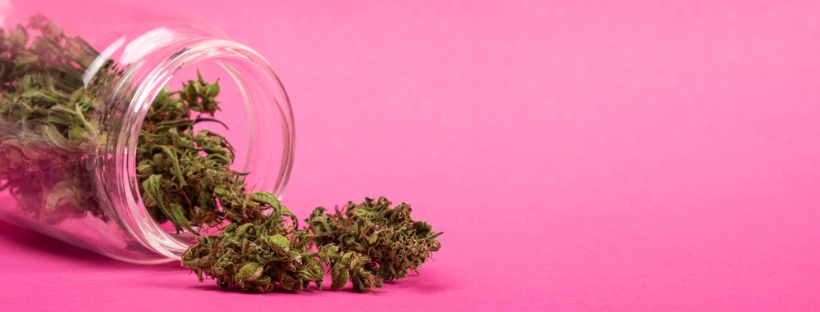
The Basic Difference Between CBD and THC
Both CBD and THC are cannabinoids that naturally occur in cannabis and hemp, although in varying quantities. Cannabinoids are substances that interact with our endocannabinoid system (ECS). By interacting with the neurotransmitters in the brain, they can affect memory, sleep, mood, pain, and more.
Overall, cannabis has more than 100 different cannabinoids, but THC and CBD appear in the highest concentrations.
The chemical formulas of THC and CBD are identical, but their atoms are arranged differently. That difference in the arrangement is what leads to the slight variation in effects.
Do THC and CBD Both Appear in Both Cannabis and Hemp?
Technically, yes, both CBD and THC can occur in cannabis and hemp, but with an important caveat.
Remember that a plant must have less than 0.3% THC to be considered hemp. While this means that technically some cannabinoids are present, it is in such small quantities that it is essentially zero. In addition, there are many hemp products with no THC at all. That said, most hemp flowers will have a negligible amount of THC.
If you want a plant with CBD, you can find it in either hemp or cannabis. As a general rule of thumb, it tends to occur in significantly higher concentrations in hemp than in cannabis, but there are exceptions to this.
The bottom line is that cannabis typically has high concentrations of THC and low concentrations of CBD. Hemp has less than 0.3% THC, a negligible amount for most people, and higher concentrations of CBD.
Which Are Psychoactive?
We already touched on the fact that THC is psychoactive, but CBD is not. This is an important distinction, as it is part of the reason for differences in their legal status.
You already know that marijuana is psychoactive, which makes sense given that it has a high concentration of THC.
Importantly, hemp is not psychoactive. Since its THC concentration is less than 0.3%, the plant does not have enough THC to cause psychoactive effects.
That is why many people consider hemp as an alternative to marijuana. It produces similar effects but is not psychoactive.
CBD Can Make THC Less Psychoactive
One interesting note is that in addition to not being psychoactive, consuming CBD along with THC can actually reduce the psychoactive effects of the THC.
Experts believe that this is because of how each cannabinoid interacts with our CB1 receptors. THC binds with those receptors, creating a high. By contrast, CBD binds weakly and can sometimes even block THC from binding.
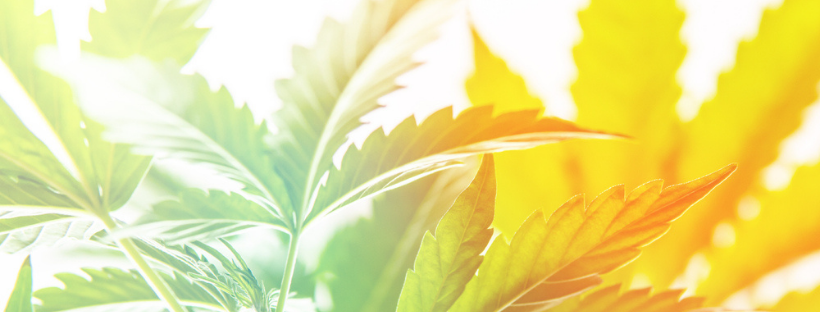
What Is Legal?
The question of legality depends entirely on what country you live in.
Canada legalized cannabis in the last few years. That means that cannabis, hemp, CBD, and THC are all legal there.
It becomes a lot more complicated in the United States. Hemp and CBD are legal at the federal level. This was established as part of the 2018 Farm Bill and is thanks to the fact that hemp also has a lot of industrial uses. That farm bill legally established the definition of hemp as having less than 0.3% THC.
But things are trickier for marijuana and THC. At the federal level, both are still Schedule 1 substances, making them illegal. However, states are free to make their own laws and legalize them. This means that in some states, medical marijuana is legal with a prescription. In others, recreational marijuana is legal. In yet others, no one can use marijuana. If a state’s law allows marijuana, it allows THC. If it bans one, it bans the other.
This legal gray area for marijuana and THC makes it more challenging for cannabis businesses in the United States. Because they are federally illegal, they have issues with payment processing and bank loans, even if they are legal within the given state.
Epidiolex
Epidiolex should be included in any discussion of legality. This was the first FDA-approved prescription medicine that contains CBD. The FDA approved it in 2018 to treat rare forms of epilepsy that are difficult to control.
What About the Effects of Each?
Every strain of hemp or cannabis will create a slightly different combination of effects. It depends on their concentrations of CBD and THC, other cannabinoid concentrations, terpenes, and flavonoids.
If you want to experience specific effects from a plant, you need to look at what most people experience when consuming a strain. But you should also remember that everyone’s body chemistry is different. You may have a different reaction than the average one. Because of this, it is best to try a strain of cannabis or hemp first when you have no responsibilities.
The difference in effects between CBD and THC is more clear-cut.
Most importantly, CBD is not psychoactive, and THC is. CBD also tends to be calming and relaxing, while THC could stimulate appetite and cause drowsiness and euphoria.
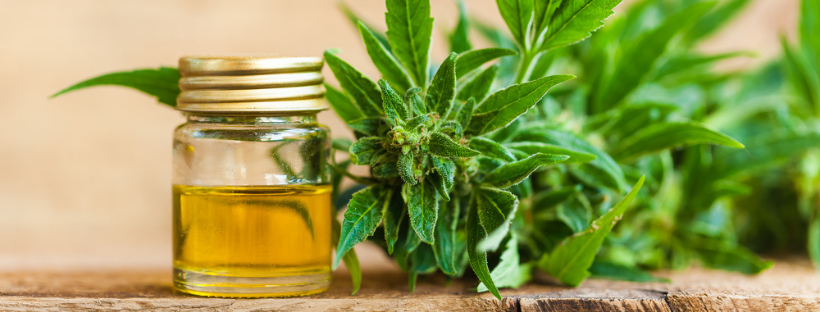
The Entourage Effect
When choosing a hemp or cannabis plant or a CBD or THC product, you should also keep the entourage effect in mind. This effect refers to the fact that combining a cannabinoid with other cannabinoids, terpenes, or flavonoids increases that effect of the cannabinoid. So, assume you could measure the pain-relieving effects of cannabinoid A and cannabinoid B. If you take A and B together, the resulting pain-relieving effects would be greater than what you would expect just by adding the results of A and the results of B.
Side Effects
It is incredibly rare for people to experience side effects from CBD, and when people do, they tend to be minor. Those effects can include weight loss, appetite changes, fatigue, dizziness, and diarrhea.
It is more common to notice side effects from THC, although they tend to be temporary. These could include anxiety, memory loss, reduced reaction times, red eyes, coordination issues, increased heart rate, and dry mouth.
It is also worth mentioning that neither THC nor CBD is fatal. However, adolescents should not consume large amounts of THC, as this may create long-term psychiatric effects.
What Do Drug Tests Check For? Can I Pass a Drug Test If I Take Hemp or CBD?
The exact answer will depend on the test in question. However, most drug tests will look for THC, not CBD.
This means that you will definitely fail a drug test if you have marijuana in your system.
CBD and hemp make things a bit more complicated. The most popular drug tests do not check for CBD, so if you take a THC-free CBD product, you should pass your drug test. However, some tests do check for CBD. If you aren’t sure whether the one you have to take will test for CBD, you should ask. While they are less common, CBD-sensitive tests exist.
Taking a drug test if you consume hemp is a bit of a risk. That comes down to the fact that hemp can contain trace amounts of THC, and drug tests have varying levels of sensitivity. Your body may also process the THC differently. This means that it is somewhat hit or miss if you’ll pass a THC-sensitive drug test if you consume hemp.
If you are subject to drug tests but want to take advantage of the effects of CBD, you could look for a THC-free product. However, there are a few caveats. First, as mentioned, CBD-sensitive tests do exist. You will obviously fail the test if you consume CBD. The other issue is that CBD products are largely unregulated. This means that a product might claim to be THC-free and still contain small amounts of THC. As long as it has less than 0.3%, the government is unlikely to stop them.
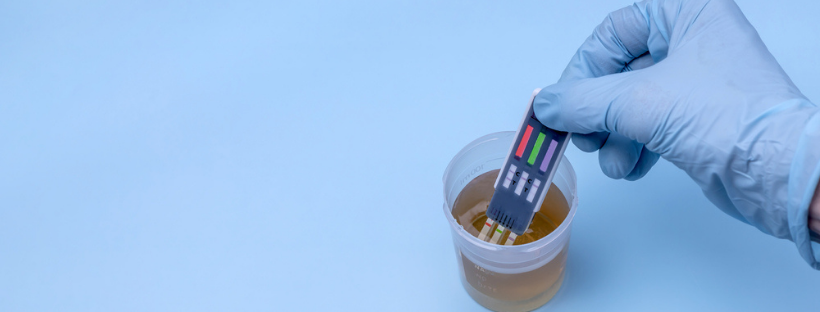
What to Do If You Need to Pass a Drug Test
The least risky method to get the effects of CBD or THC and still (hopefully) pass a drug test is to get a THC-free product from a company with laboratory analysis. Most reputable companies have third-party laboratories test their products and publish the results on their website. This could let you confirm that the product really is THC-free. Just remember that there is still a very small risk that there would be trace amounts of THC that could show up on an incredibly sensitive test, but this is highly unlikely.
How Do You Know How Much CBD and THC Is in a Product?
You will notice that the common theme on whether a product is legal, how it affects you, and whether it shows up on a drug test is how much CBD and THC it has. But, how do you know how much of each is in it?
The best option is to always look for products or flowers from a company with laboratory analysis. In the case of hemp and cannabis flowers, companies will typically give you an approximate percent concentration of THC, CBD, and other cannabinoids that occur in large enough quantities.
In the case of products like tinctures, gummies, oils, capsules, and extracts, you want to look for laboratory analysis and at the product description. If you buy from a trusted company, the product description should give you a general idea of quantities. The best option, however, will always be to look for third-party analysis. This will give you exact percentages, and you can typically get the information by batch. This means you can see the exact percent in the product you buy.
The Takeaway
To put it simply, marijuana and cannabis are two names for the same plant. That plant has high concentrations of THC and typically low concentrations of CBD. Hemp has low concentrations of THC and high concentrations of CBD. In the United States, hemp and CBD are federally legal, but THC and marijuana are not, although states are free to legalize them.


